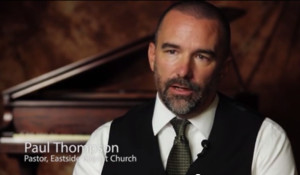 Last night (4/19/16) I met up with John Martinez, Steve McMullin and Bradley Kinch again to process through and think about the whole of the worship gathering of the Lord’s people and what is required of those who lead out in the gathering. We gathered at one of my favorite places in town, Chick-fil-A, to enjoy the fellowship of brothers and discuss the important duty we have to God in leading His people to worship Him.
Last night (4/19/16) I met up with John Martinez, Steve McMullin and Bradley Kinch again to process through and think about the whole of the worship gathering of the Lord’s people and what is required of those who lead out in the gathering. We gathered at one of my favorite places in town, Chick-fil-A, to enjoy the fellowship of brothers and discuss the important duty we have to God in leading His people to worship Him.
The next chapter we reviewed was the Qualification of a Worship Leader.
Matt Boswell, presented a respectful view that those who lead out in the worship gathering are required to meet a biblical standard first. The music skill is important and should be increased, but criteria number one is, what does the Bible say about the qualifications of those leading.
I like that Boswell does not label worship as only music. It is a duty of the pastor to lead, or disciple, the Lord’s people in what is to be said, sung, done in relationship to worshiping God. God informs us in how to do this and He is fair to establish standards of those who will lead.
His examination came from classic Text of Scripture of what the apostle Paul has to say to Timothy, Titus and what Peter has to say. The Bible does inform the church on who is to lead out. The church has a duty to obey the Lord.
After reading this chapter and the Scripture qualifications we all agree that it is an amazing work of God’s grace that there is anyone able and qualified to lead His people in worship. It is indeed a work of grace for His glory.
Who should Lead?
First, the leader should be a man. This does not mean that women can not assist and participate, but it is clear that God has established men to lead His people. We were all in agreement on Boswell’s first point. This may be considered unfair by some and may even put some churches in danger of being disobedient.
Once this starting point was settled he began short observations of the classic text. The leader of worship should be…
- Male
- Above reproach
- A One-Woman Man
- Sober-Minded
- Self Controlled
- Disciplined
- Respectable
- Mature
- Hospitable
- Able to Teach
- Sober
- Gentle Peacemaker
- Humble
- Not a Lover of Money
- A Leader in His home
We took the time to discuss all of these and spent time to talk about how they fit each of us and again, reminded that God does have a right to establish standards for those who lead His people. Each one of these qualifications leave a leader nearly crushed by the many reasons why we don’t meat the standard.
This internal war of the mind of the worship leader (pastor/elder) may be best described in the words of the late Charles Spurgeon
“You are not mature if you have a high esteem of yourself. He who boasts in himself is but a babe in Christ, if indeed he be in Christ at all. Young Christians may think much of themselves. Growing Christians think themselves nothing. Mature Christians know that they are less than nothing. The more holy we are, the more we mourn our infirmities, and the humbler is our estimate of ourselves.”
The discussion of the book was a blessing, the spicy chicken sandwich and waffle fries were delicious, but the time eye ball to eye ball with brothers talking about God was the winner of the night.
A few quotes from “Qualification of a Worship Leader”
“Since the primary role of the worship leader is a teaching role, it seems he ought to be qualified as an elder. In light of this, throughout this chapter and most of the book, the pronoun “he” will be employed through the lens of a complementarian view of men and women. Complementarians believe that men and women are both created equally in the image of God. They have the same value and the same purpose – to glorify God and enjoy Him forever. At the same time, they are also created distinctly male and female.”
“The worship leader’s marriage should be exemplary and worthy of imitation.”
“Being emotionally driven is not a personality type, but an immaturity and should be repented of and fought. Pastors should be driven by the Truth.”
“The worship of God is not to be entered into flippantly or unadvisedly.”
“Above all these commands, the chief end is that our churches would be led by men who would bring great joy, not only to their congregation, but to the community. The qualifications for ministry outlined above are not meant to be heavy-laden and burdensome, but a reflection of the holiness God demands in the context of worship. The worship leader must be holy.”

